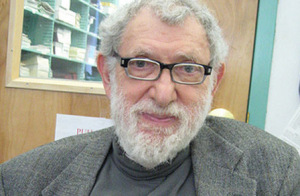A Quote by Philip Stanhope, 4th Earl of Chesterfield
Any affectation whatsoever in dress implies, in my mind, a flaw in the understanding.
Quote Topics
Related Quotes
Religion, it seems to me, has nothing whatsoever to do with any belief, with any priest, with any church or so-called sacred book. The state of the religious mind can be understood only when we begin to understand what beauty is; and the understanding of beauty must be approached through total aloneness.
You have many flaws, he announced... “But there was one flaw that made all the other imperfections pale in comparison.” “Was?” she asked. “I don't have this flaw any longer?” “No, you don't.” “Pray tell,” she muttered in exasperation, “what was this terrible flaw?” He grinned. “You used to be English.
Just understand, don`t choose - don`t choose even choicelessness. Simply understand the whole situation: that whatsoever you choose, whatsoever you do, will come out of the calculating mind. It cannot be the real thing. Your mind can only produce dreams, it cannot produce the truth. Truth cannot be produced, nobody can produce it. It is there; it has to be seen. Nothing has to be done, just a look is needed - a look without any prejudice, a look without any choice, a look without any distinctions.
Taste, if it mean anything but a paltry connoisseurship, must mean a general susceptibility to truth and nobleness, a sense to discern, and a heart to love and reverence all beauty, order, goodness, wheresoever, or in whatsoever forms and accompaniments they are to be seen. This surely implies, as its chief condition, not any given external rank or situation, but a finely-gifted mind, purified into harmony with itself, into keenness and justness of vision; above all, kindled into love and generous admiration.
Propriety of thought and propriety of diction are commonly found together. Obscurity and affectation are the two greatest faults of style. Obscurity of expression generally springs from confusion of ideas; and the same wish to dazzle, at any cost, which produces affectation in the manner of a writer, is likely to produce sophistry in his reasonings.
Society is an interweaving and interworking of mental selves. I imagine your mind and especially what your mind thinks about my mind and what my mind thinks about what your mind thinks about my mind. I dress my mind before you and expect that you will dress yours before mine. Whoever cannot or will not perform these feats is not properly in the game.
No need to choose; become choiceless. And whatsoever happens happens; whatsoever happens is good. Let things happen rather than trying to do, and you will be surprised that all ambiguity disappears. It is a by-product of the chooser's mind, the choosing mind, that creates ambiguity. Otherwise there is no dilemma. Negative and positive are perfectly balancing in life.
Nothing comes to pass in nature, which can be set down to a flaw therein; for nature is always the same, and everywhere one and the same in her efficacy and power of action: that is, nature's laws and ordinances, whereby all things come to pass and change from one form to another, are everywhere and always the same; so that there should be one and the same method of understanding the nature of all things whatsoever, namely, through nature's universal laws and rules.

































